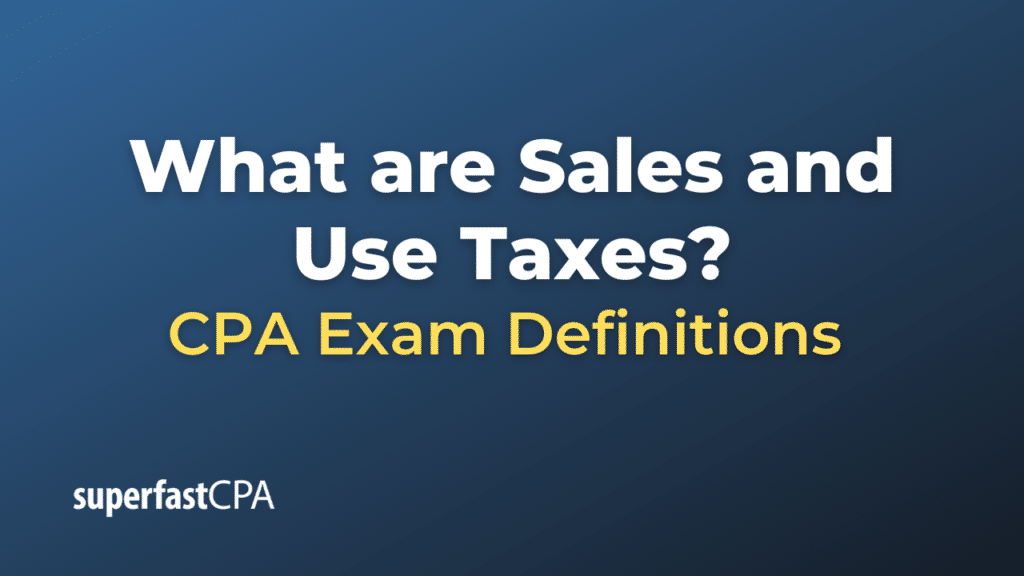Sales and Use Taxes
“Sales and use taxes” are typically state and/or local taxes imposed on the sale, rental, or use of tangible personal property and certain services. While they are often thought of as a single tax, they serve different purposes and are triggered by different events.
- Sales Tax:
- This is a tax on the sale of tangible personal property and certain services. The seller usually collects it at the point of sale from the purchaser and then remits it to the state or local government.
- The rate can vary by state and locality and can also differ based on the type of item being sold (e.g., general goods, food, luxury items).
- Use Tax:
- Use tax is imposed on the use, storage, or consumption of tangible personal property or certain services within a state when the sales tax hasn’t been paid.
- This typically comes into play for items bought outside of the purchaser’s state of residence or from a seller who did not collect sales tax. For instance, when someone purchases an item online from another state and is not charged sales tax, they are usually responsible for paying the use tax on that item in their home state.
- The rate for use tax is generally the same as the sales tax rate in the purchaser’s state of residence.
Example of Sales and Use Taxes
Let’s illustrate the concept of sales and use taxes with a detailed example involving an individual named Alex.
Alex lives in California, which has a sales tax rate of 7.25%. One day, he discovers a specialty online store based in Oregon (a state with no sales tax) that sells vintage guitars. Alex decides to buy a guitar priced at $1,000 from this store. The online retailer doesn’t charge him any sales tax since they are based in Oregon.
Sales Tax Implication:
If Alex had bought the guitar from a local store in California, he would typically have been charged a sales tax of 7.25% on his purchase. That would amount to $72.50 ($1,000 x 0.0725).
However, since he made the purchase from Oregon, no sales tax was applied to his transaction.
Use Tax Implication:
Even though Alex wasn’t charged sales tax by the Oregon retailer, he’s still technically required to pay a use tax to California since he’ll be using the guitar there. The use tax rate is typically the same as the sales tax rate. So, Alex owes California a use tax of 7.25% on the $1,000 purchase price, which equals $72.50.
In reality, while Alex is legally required to pay this use tax, many individuals either aren’t aware of this obligation or choose to overlook it due to the challenges states face in enforcing use tax compliance for individual purchases. However, it’s always recommended to stay compliant with state tax laws to avoid potential penalties or interest in the event of an audit.
Recently, to improve tax compliance, some states have been making efforts to require online retailers to collect sales tax, even if the retailer doesn’t have a physical presence in that state. This helps level the playing field for local businesses and ensures that the state collects its due revenue.













